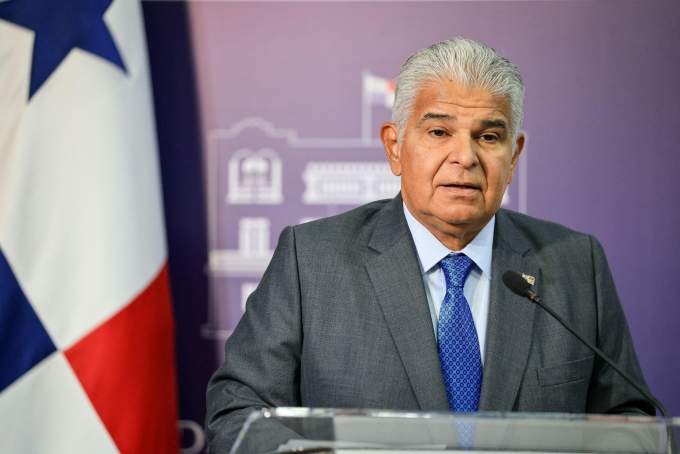Panama has formally withdrawn from China’s Belt and Road Initiative (BRI), with its ambassador in Beijing delivering an official diplomatic note terminating the agreement, President Jose Raul Mulino announced on February 6.
"Our ambassador in Beijing has presented the official diplomatic note to withdraw from the Belt and Road Initiative," Mulino stated, adding that the decision was made before U.S. Secretary of State Marco Rubio visited Panama earlier this week.
The Panamanian president said he carefully reassessed his country’s relationship with China and determined that leaving the BRI was "the best choice for Panama."
Ties to U.S. Pressure and the Panama Canal Dispute
The formal withdrawal from the BRI comes just four days after Secretary Rubio’s visit, during which he met with President Mulino to discuss China’s influence in Panama. After the meeting, Mulino announced his intention to review the agreement, a move that quickly escalated with President Donald Trump openly declaring that he would consider "strong measures" to regain control of the Panama Canal, claiming that "China is controlling" the vital shipping route.
Panama joined the Belt and Road Initiative in 2017 under former President Juan Carlos Varela, shortly after establishing diplomatic ties with China and severing relations with Taiwan. The country was the first in Latin America to formally sign onto Beijing’s ambitious infrastructure plan.
The BRI agreement—officially titled "Cooperation on the Silk Road Economic Belt (SREB) and the 21st Century Maritime Silk Road (MSR)"—aimed to integrate Panama’s trade and infrastructure with China’s global economic network. Under the agreement, China invested in ports, railways, and logistics hubs to enhance connectivity between Asia and Latin America.
Automatic Renewal Clause and Remaining Projects
The Panama-China agreement contained a clause stating that it would automatically renew every three years unless one party formally requested termination. According to the terms, Panama had to notify China three months in advance before withdrawal could take effect. However, existing projects that were already underway must continue as planned.
President Mulino questioned the previous administration’s decision to join the BRI, criticizing the lack of tangible benefits.
"I don’t understand why the previous government signed this deal with China. What exactly has the BRI brought us over all these years? What grand promises were ever fulfilled? We’re leaving. That’s final," Mulino declared.
Panama will also reevaluate other agreements with Chinese companies, including a 25-year lease signed in 2021 allowing Hong Kong-based CK Hutchison Holdings to operate ports near both ends of the Panama Canal. Mulino stated that his administration would conduct an audit of the contract before making a final decision.
U.S. Concerns Over Chinese Involvement in the Panama Canal
Over the past few months, President Trump and several Republican lawmakers have voiced concerns that Panama’s economic partnerships with China—particularly involving the Panama Canal—violate the neutrality provisions of the 1977 U.S.-Panama Treaty.
Panama has rejected these accusations, arguing that the Chinese-operated ports are outside the jurisdiction of the canal itself.
China’s Response Pending
Beijing has not yet issued an official statement regarding Panama’s withdrawal from the BRI.
However, in January 2024, Chinese Foreign Ministry spokesperson Mao Ning denied allegations that China was interfering with the operation of the Panama Canal or threatening Panama’s sovereignty. "China has never interfered in the Panama Canal’s management or Panama’s internal affairs," she stated, emphasizing that Beijing views the Pacific-Atlantic waterway as a permanently neutral international shipping route.
(Sources: Reuters, AFP)



